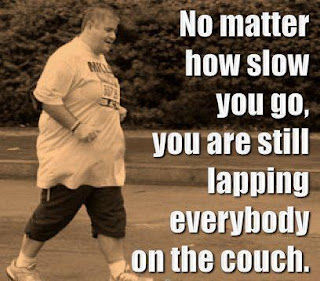That is what parents of people with disabilities hear – in our own heads – when we get unwanted parenting advice from certain people. I’ll go into who those people are later, but for now, here are some other things we hear while getting unwanted parenting advice:
You are a failure.
Your child could be so much better if they had someone else as a parent.
You are too lazy to be a good parent.
You don’t do enough to help your child succeed.
You don’t spend enough time working with your child.
You don’t teach your child things they need to know.
You don’t work hard enough.
You don’t even try.
We hear these and many other things while listening to unwanted parenting advice. And we have some responses whirling around in our heads as we listen to the advice:
Oh, sure! I wish I had thought of that! Duh!!
You don’t have a &%$ clue what you’re talking about!
You think you could do a better job with my child? If you had to do this for JUST ONE DAY it would break you!
Shut the @*%^ up, you moron!
Keep it together now. She / He means well. She / He does not realize how this sounds.
We know the advice is not meant to be heard the way we hear it, but we still hear it that way. We know you don’t mean to be rude or condescending, but it is rude and condescending to tell someone how to parent their child who has a disability – in certain cases. Here is a list of who should NOT be giving advice:
If you have never raised a child with this disability; if you live in a home with a person with a disability, but you give all the caregiving responsibility to someone else; if you have never worked with people who have disabilities; if you do not have a disability; if you are a doctor, but you do not work with people with disabilities or specialize in the disability you are giving advice about, then you should keep your mouth shut. Period. There is no argument you can make to justify giving us advice. If you fall into any of those categories – whether you are a relative, or not, you should not be giving advice to parents or caregivers. If ever you are tempted to say to the parent of a person with disabilities, “If this were my child I would…” Stop right there and keep it to yourself. Because you really do not have a clue.
Why don’t you have a clue? I’m so happy you asked! You don’t have a clue because you don’t really know the person with a disability you are talking about. You don’t really know how they are, or who they are. You only know how they act around you, but not at home, not when they are alone with their caregiver, not when they are away from you. You only see certain things, but there are other things that are relevant that you don’t see. You don’t see what parents and caregivers actually do each day in service of this person they love. These are things we will not discuss with you because we are allowing for a certain amount of dignity in the life of the person with the disability. You don’t see us cleaning up after them, working with them on self-care or other things, teaching them things. You don’t realize that this person you think we are not helping enough is not someone who needs to be fixed. Maybe you don’t realize that not every minute of the day must be spent improving them. People with disabilities need fun and down time. Parents need fun and down time.
The way to truly tell if you should be giving us advice is if we ask you for it.
When you fall victim to unwanted parenting advice – and you will at some point – there are several ways to handle it…
Just smile and nod as if in agreement then change the subject.
Say, I appreciate that you care so much. I do all that I can do with the time we have, even though you are not there to witness it.
Or say, I’m sorry, but you really have no idea how to parent someone with this disability so I would appreciate you keeping your advice to yourself.
Or, When you become the parent of a child with ______ you can give that a try! Let me know how it turns out for you.
And above all else, remember how awesome you are! Do not let them bring you down!
If you have other peaceful suggestions for dealing with this topic, I would love to hear them! Shoot me an e-mail at Mindchange4all@gmail.com
Check out my recommended reading in Books I Love. I hope this blog helps you to create a more peaceful life. Keep in touch by the following methods: Use the links under the archive menu to subscribe or follow by e-mail. Help me get this message out by sharing it with your friends on social media! If you enjoyed it and were helped by it, they will, too! Write to me with your comments and questions at mindchange4all@gmail.com I look forward to hearing from you.




